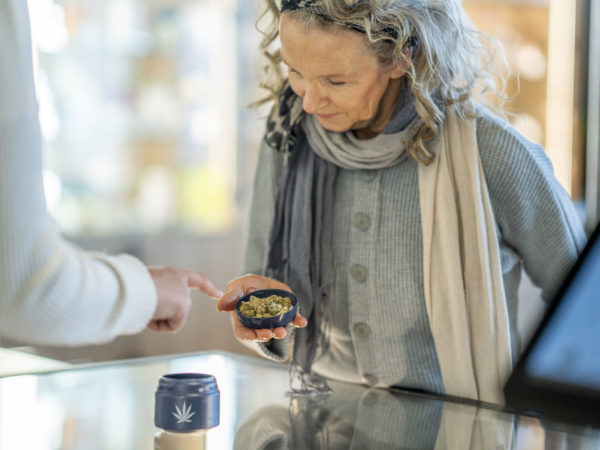Is Cannabis Anti-Inflammatory?
I’ve read that cannabis can be used to address depression, insomnia, and pain. Does it also have anti-inflammatory properties?
Andrew Weil, M.D. | July 26, 2024

Cannabis has a long history of medicinal use and was used widely in the United States until it was effectively prohibited by the Marihuana Tax Act of 1937. We have learned a lot about the cannabis plant since then and have documented many of its benefits. There is good reason to believe cannabis has anti-inflammatory effects and could be useful in treating chronic inflammation — evidence is still being developed, but a discovery some 30 years ago has been central to advancing our scientific understanding.
The human endocannabinoid system, unknown until the 1990s, is made up of three parts: molecules called endocannabinoids, the receptors that bind to them, and enzymes that break them down once their work is done. The fact that endocannabinoid receptors are present in all vertebrate species is an indicator of their importance in adaptation to environmental changes.
We all produce endocannabinoids naturally. The body uses them to maintain a wide variety of functions, including appetite, metabolism, mood, memory, sleep, bone growth, and many others. The endocannabinoid system can also be triggered by pain or injury, when our endogenous (naturally generated) cannabinoid molecules kick in to re-establish balance in the body.
Although cannabis has been used for centuries as an anti-inflammatory, research has not yet completely identified what compounds may be at work in that process. Clarifying the mechanisms by which our naturally occurring cannabinoids influence the inflammatory process would potentially allow us to identify similar molecules that occur in the cannabis plant and to develop them as therapies. Without that full understanding, however, it has been difficult to establish formulations or dosages of cannabis-derived products that could reliably replicate the effects of the natural molecules.
A 2022 article in the journal Frontiers in Pharmacology did a thorough review of how the compounds in cannabis do their work; that paper concluded that they do indeed affect chronic inflammation. It cautions, however, that cannabis produces so many active compounds, with such complex interactions, that it is still not possible to specify cannabis-based treatments with the level of certainty required of modern medicine.
Cannabis has been legalized in many states but remains a Schedule 1 drug under federal law. That categorization defines it as a drug with “no currently accepted medical use and a high potential for abuse;” it’s an extremely frustrating situation, given its potential and demonstrated benefits. As the restrictions to research are modified to allow further investigations about its role in inflammation, I’m confident that evidence-based, anti-inflammatory therapies derived from cannabis will become recognized and available.
For more about therapeutic uses of cannabis, see Cannabis for Depression; Cannabis for Migraines; and Cannabis for Better Sleep.
Andrew Weil, M.D.
Sources
Anil SM, Peeri H, Koltai H. Medical Cannabis Activity Against Inflammation: Active Compounds and Modes of Action. Front Pharmacol. 2022 May 9;13:908198. doi: 10.3389/fphar.2022.908198. PMID: 35614947; PMCID: PMC9124761. ncbi.nlm.nih/pmc/articles/PMC9124761/
Mechoulam, R., Sumariwalla, P.F., Feldmann, M. et al. Cannabinoids in Models of Chronic Inflammatory Conditions. Phytochem Rev 4, 11–18 (2005). https://doi.org/10.1007/s11101 link.springer/article/10.1007/s11101-004-1534-1












